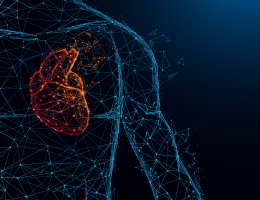
Could cancer be tied to stress? A new study suggests the answer may be yes, according to the American Heart Association. Researchers found that 1 out of 6 people with broken heart syndrome also had cancer.
Broken heart syndrome is a heart condition that can be triggered by an emotionally stressful event (such as the death of a loved one) or by physical stress (such as a surgery or infection).
It seems to be a reaction to the stress hormones that flood the body in difficult times. These hormones can cause the heart to temporarily enlarge and not pump well. It may even feel like a heart attack—symptoms include chest pain and shortness of breath. But the heart muscle isn’t damaged, and the arteries that feed it aren’t blocked.
Most people with broken heart syndrome recover in weeks. But researchers wondered if there was a link to more long-term problems, such as cancer.
Unlocking the heart’s secrets
The international study looked at over 1,600 people with broken heart syndrome treated at 26 medical centers. Of them, 267 were found to have cancer. The most frequent type was breast cancer. That was followed by cancers of the gastrointestinal system, respiratory tract, internal sex organs and skin.
The study also found that, compared to broken heart syndrome patients without cancer, those with cancer were:
- More likely to have experienced a physical trigger.
- Less likely to have experienced an emotional trigger.
- More likely to die within five years of being diagnosed with broken heart syndrome.
The study was too small to reveal if this worse prognosis might be related to a particular type or stage of cancer—or its treatment.
But researchers did conclude that people with broken heart syndrome might benefit from being screened for cancer. And people with cancer might benefit from being screened for broken heart syndrome if they experience heart trouble.
The study appeared in the Journal of the American Heart Association.
Original Source: https://pennstatehershey.netreturns.biz/HealthInfo/Story.aspx?StoryId=40b0432d-0c41-418f-bc85-a4e2ef5ea911#.XX_Et2lKiUk